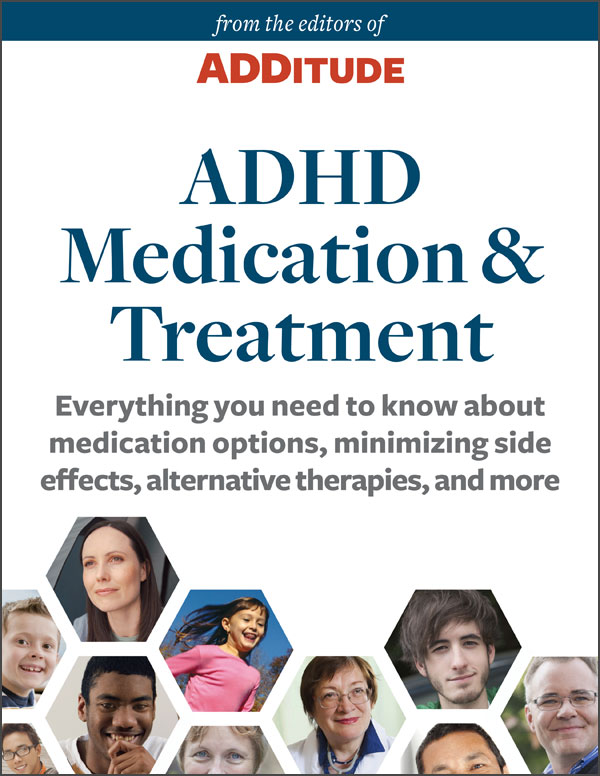“How Joint Hypermobility Links Neurodivergence, Chronic Pain, Inflammatory Disorders, and Anxiety” [Video Replay & Podcast #560]
Access the video replay, listen to the podcast episode (#560), download the slide presentation, and learn how to get a certificate of attendance for this ADHD Experts webinar originally broadcast on May 29, 2025.
Video Replay + Slides + 15% Off ADDitude
Enter your email address below to access the replay, get a discount on your ADDitude order, and receive strategies from ADDitude via email.
You may opt out at any time. Terms of Use and Privacy Policy .
Episode Description
![]()
A growing body of research points to an association between neurodivergence, joint hypermobility, chronic pain, and anxiety, though this link is not well understood. Health care providers have recognized for years that people with ADHD and autism experience physical symptoms, such as migraines, gut disorders, and pain sensitivity, at a rate higher than the general population. But researchers are now gaining a deeper understanding of how and why hypermobility, which is much more prevalent among people with ADHD and autism, may be a mediating factor in linking neurodivergence, pain, and chronic conditions.
In one study led by Dr. Jessica Eccles, and published in The British Journal of Psychiatry, key brain mechanisms were thought to explain these connections. The study found that differences in the amygdala in people with hypermobility made them more sensitive to pain and anxiety, and it noted that their autonomic functions (symptoms include fatigue, fainting, and gut problems) were disrupted.
In this webinar, Dr. Eccles will explain:
- The link between ADHD, autism, joint hypermobility, and chronic pain, and why these are more common in neurodivergent populations
- The mechanisms of chronic pain, joint hypermobility, inflammatory disorders, and fatigue in autistic children and adults with ADHD
- Findings from the latest research on chronic pain, joint hypermobility, and other inflammatory disorders and processes that are more common in ADHD and autism.
- Treatment options and strategies for managing these conditions.
Watch the Video Replay
Enter your email address in the box above labeled “Video Replay + Slide Access” to watch the video replay (closed captions available) and download the slide presentation.
Joint Hypermobility, Pain, & Neurodivergence: Resources
- Read: ADHD at the Center: A Whole-Life, Whole-Person Condition
- Read: How ADHD Can Intensify Physical Health Conditions
- Read: ADHD, Autism, and Neurodivergence Are Coming Into Focus
- Read: Comorbid Conditions with ADHD: What Is Your Primary Diagnosis?
- Read: The Gut-Brain Axis Could Accelerate Autism Understanding
- Study: Chronic Fatigue Twice as Likely Among Children with ADHD
- Watch: The Surprising Association Between ADHD & Inflammation
- Slideshow: 6 Types of Anxiety
Obtain a Certificate of Attendance
If you attended the live webinar on May 29, 2025, watched the video replay, or listened to the podcast, you may purchase a certificate of attendance option (cost: $10). Note: ADDitude does not offer CEU credits. Click here to purchase the certificate of attendance option »
Meet the Expert Speaker
Dr. Jessica Eccles is a researcher at the department of Neuroscience at Brighton and Sussex Medical School in the United Kingdom. Her areas of expertise include brain-body interactions, joint hypermobility, liaison psychiatry, and neurodevelopmental conditions.
Dr. Eccles trained in medicine at the University of Cambridge and the University of Oxford, which sparked a keen interest in philosophy and brain-body interactions. She completed her PhD in the relationship between joint hypermobility, autonomic dysfunction, and psychiatric symptoms. She is a recognized expert in brain-body medicine and a researcher and educator, and is chair of the Neurodevelopmental Psychiatry Special Interest Group at The Royal College of Psychiatrists.
Dr. Eccles and her team have published papers on the brain-body interactions between neurodivergence, emotion regulation and proprioception (the body’s ability to sense its own position and movements without having to rely on visual input alone), and the role of neurodivergence and inflammation on chronic fatigue in adolescents.
Dr Eccles also led a study which found that neurodivergent people are more than twice as likely as the general population to have hypermobile joints and are far more likely to experience pain on a regular basis.
In 2024, Dr. Eccles was the winner of the Research Pioneer Award conferred by The Ehlers Danlos Society for her hypermobility research.
Follow ADDitude’s full ADHD Experts Podcast in your podcasts app:
Apple Podcasts | Spotify | Google Play | Amazon Music | RadioPublic | Pocket Casts | iHeartRADIO | Audacy
Video Replay + Slides + 15% Off ADDitude
Enter your email address below to access the replay, get a discount on your ADDitude order, and receive strategies from ADDitude via email.
You may opt out at any time. Terms of Use and Privacy Policy .






